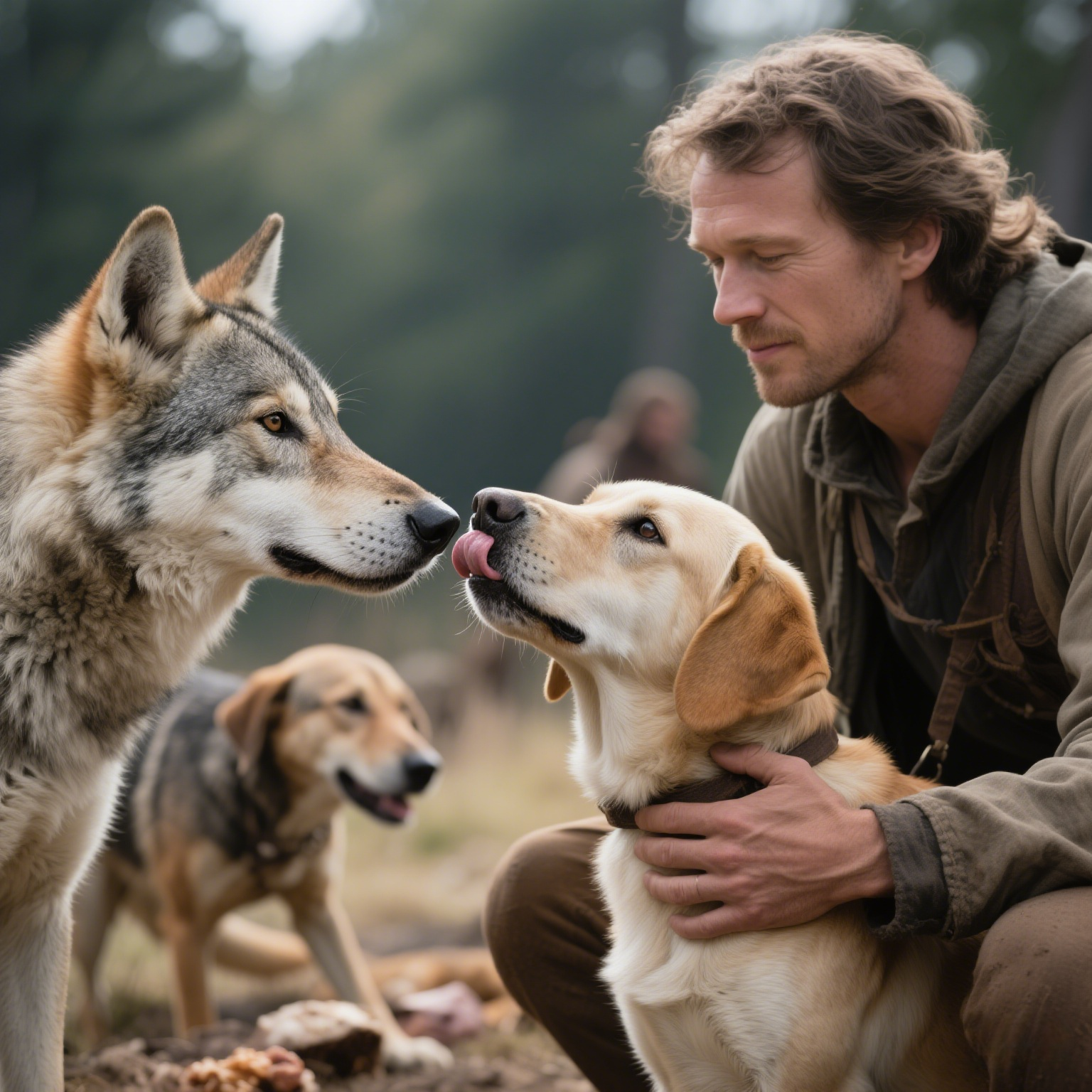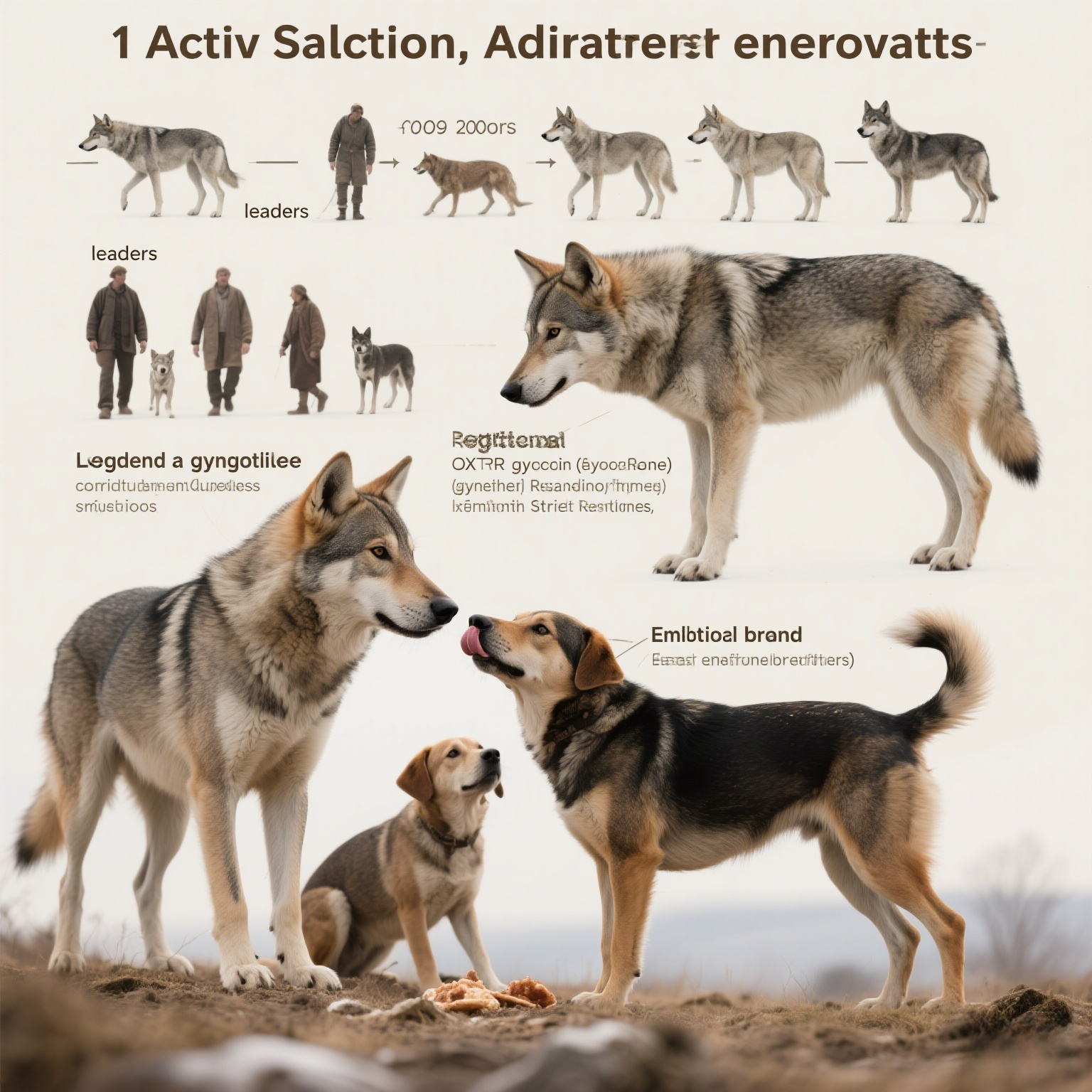1. Active selection and adaptive evolution in the process of domestication
The gray wolf, the ancestor of dogs, was domesticated by humans about 10,000 to 20,000 years ago. Through multiple generations of screening for docile and cooperative individuals, the domestic dog subspecies gradually formed. Humans prioritized breeding wolves with strong obedience and low aggression, shifting their social structure from a competition model of wolf packs to dependence on human "leaders".
Domestication is not only a human-led behavior. Some wolves may actively approach humans due to weakness or isolation, and form a symbiotic relationship by obtaining food and protection.

2. Loyalty tendency at the genetic level
Compared with wolves, dogs have undergone significant genetic mutations during the domestication process, such as differences in the OXTR gene (oxytocin receptor gene) related to social behavior and stress response, making them more likely to trust and attach to humans.
Humans have strengthened the obedience of dogs through artificial selection, such as reducing aggression and enhancing the ability to interpret human instructions.
3. Emotional bond and mutually beneficial relationship
Survival dependence: Dogs regard humans as resource providers (food, shelter), while humans use dogs to complete tasks such as hunting and guarding, forming a mutually beneficial symbiosis.
Emotional interaction: Dogs can sense human emotions and respond through behaviors such as wagging their tails and licking. This two-way emotional exchange deepens loyalty. Studies have shown that when dogs interact with their owners, they release pleasure hormones similar to those of humans (such as dopamine).

4. Social behavioral explanation
The hierarchy in the wolf pack is transferred to the human-dog relationship. Dogs regard their owners as "alpha wolves" and obey instinctively. If humans show authority (such as clear instructions and clear rewards and punishments), the dog's loyal behavior will be more significant.
Rural native dogs are not sterilized and have a guarding function, so they have a stronger sense of protecting their owners, which confirms the shaping of loyalty by functional needs.
Summary: Dogs' loyalty is not determined by a single factor, but is the result of the combined effects of domestication history, genetic evolution, emotional interaction and social behavior. This uniqueness allows them to continue to play an irreplaceable role in human civilization.
 Français
Français Deutsch
Deutsch Pусский
Pусский
